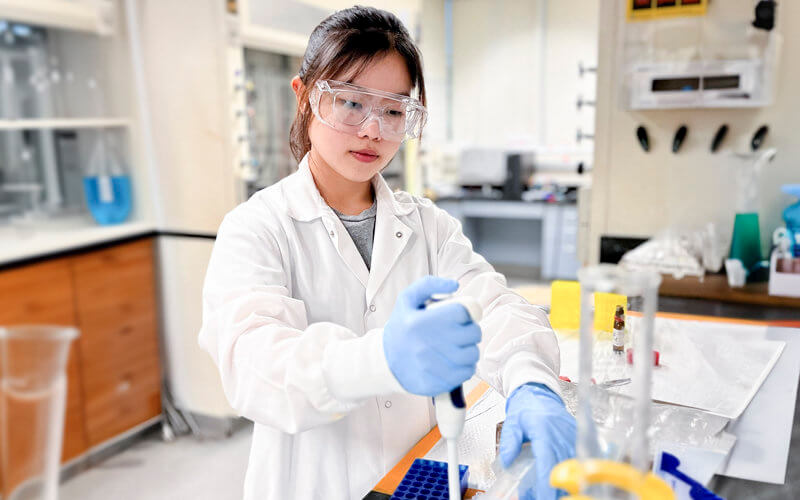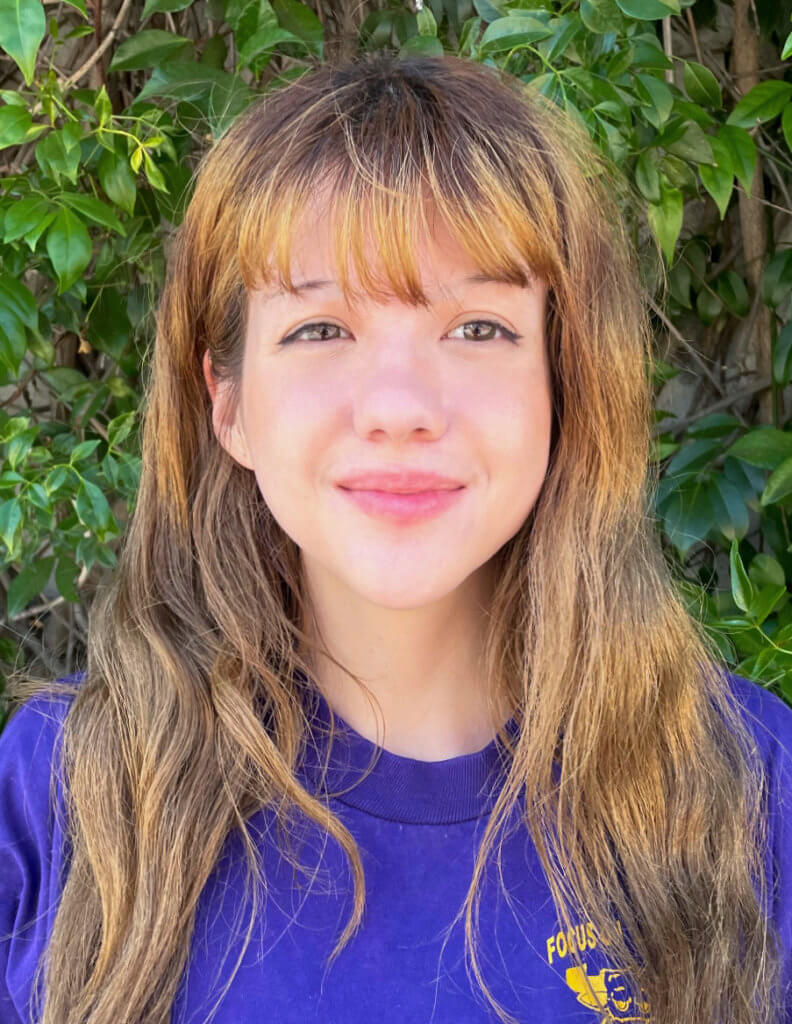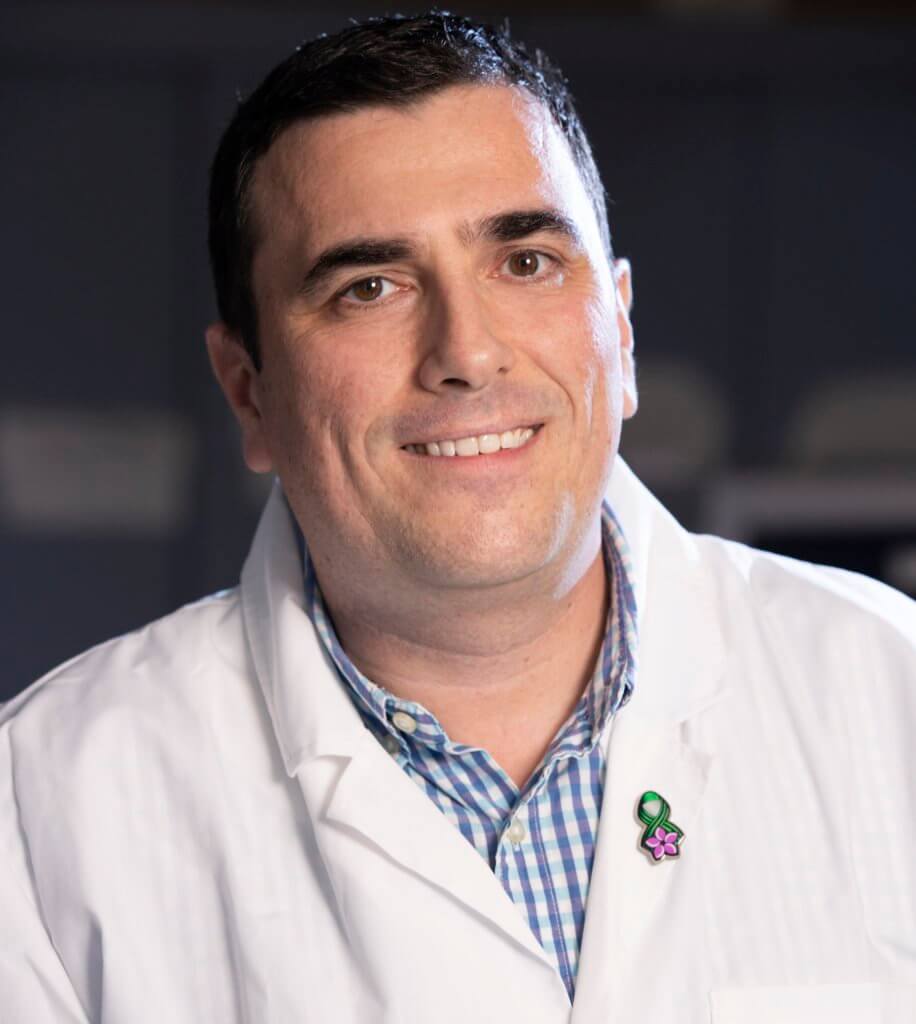
Cal State Fullerton medicinal chemistry students Faye Yun and Leah Duong are studying drug design and creating new chemical compounds to develop a novel non-opioid solution for chronic pain treatment.
The research project, led by Stevan Pecic, assistant professor of chemistry and biochemistry, is funded by a nearly $600,000 grant from the National Institutes of Health.
“Our project has the potential to revolutionize pain management,” Pecic said.
According to the National Institutes of Health, more than 50 million adults in the U.S. experience daily chronic pain and another 20 million Americans report high-impact chronic pain. Common chronic pain medications include opioids and anti-inflammatory drugs like ibuprofen.

“This research is crucial because chronic pain is a significant health issue worldwide, impacting millions and often leading to disability. The current reliance on opioids for pain management is problematic due to risks like addiction,” said Yun, a Class of 2024 graduate who will earn a bachelor’s degree in biochemistry in May.
Duong, a second-year graduate student studying organic chemistry, relayed that for those suffering from chronic pain, common nonaddictive painkillers like ibuprofen often don’t work and can lead to adverse side effects.
“The goal of this research is to develop a safe and effective non-opioid therapeutic option that is potent enough to treat chronic pain,” Duong said.
The most effective analgesic drugs currently used to treat moderate-to-severe pain are prescription opioids, such as oxycodone, explained Pecic, who previously worked in the Division of Experimental Therapeutics at Columbia University Medical Center.
“Prolonged use of opioids will eventually lead to tolerance, physical dependence, addiction and even death,” he said.
A Promising New Non-Opioid Treatment
Pecic and his team of student researchers are developing small molecules that simultaneously inhibit two enzymes, called soluble epoxide hydrolase and fatty acid amide hydrolase, which are involved in pain and inflammation processes.

“This promising therapeutic strategy represents an opportunity to solve problems linked to existing therapies with completely new, non-opioid pain management research,” Pecic said.
“Using modern medicinal chemistry and sustainable techniques and tools, we aim to demonstrate that our drugs effectively inhibit both enzymes involved in pain and inflammation.”
Pecic’s latest research continues his first $426,000 NIH grant project. This study, conducted from 2020-23, showed that inhibiting both enzymes simultaneously would relieve pain.
Pecic and his students are collaborating with Bruce D. Hammock, a professor and entomology and chemistry expert at UC Davis, and Ram Kandasamy at Cal State East Bay. Kandasamy is a behavioral pharmacologist and co-investigator of the new NIH grant.
Hands-On Opportunities in Drug Design
Inside Pecic’s lab in Dan Black Hall, students are working on all aspects of the project, including designing and synthesizing these original drugs, studying how these drugs interact with the body, predicting drug properties and measuring enzyme activities.
Students are trained to work on sophisticated medicinal chemistry instruments and learn medicinal chemistry techniques integral to doctoral-level academic research projects and those used in the pharmaceutical and biotechnology industries.
“These experiences in the lab and at conferences will help students to pursue a career in the biomedical sciences regardless of their intent to pursue a career in academia or the workforce,” Pecic said.
In March, students will present their research at the American Chemical Society meeting in New Orleans and at the National Conference on Undergraduate Research in Long Beach in April. Duong and Yun also presented their projects at the California State University Biotechnology Symposium in Santa Clara last month.
Duong, born and raised in Vietnam, earned a bachelor’s degree in chemistry from CSUF in 2023 and plans a career as a therapeutic scientist to develop new drugs.
“Being able to do this research with Dr. Pecic and getting the opportunity to develop all the hands-on skills that I have learned will make a difference when I apply for jobs in the field,” she shared.
Yun, a transfer student from Chaffey College in Rancho Cucamonga and scholar in the university’s U-RISE program to prepare students for careers in biomedical science, has applied to doctoral programs in chemistry for the fall.
Her career goal is to become a researcher in the field of chemical biology, with a focus on drug development.
“Given my background and experiences, I am deeply committed to advancing the field of medicinal chemistry, especially in developing new therapeutic solutions for critical health care issues like chronic pain,” Yun said.